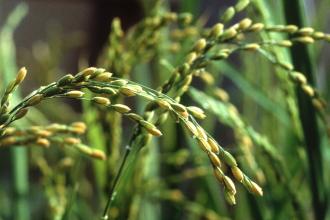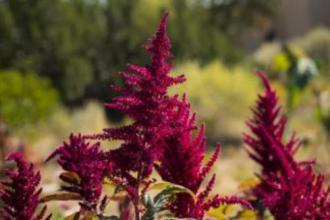About AFSIC
The Alternative Farming Systems Information Center (AFSIC) provides research-based resources for nontraditional food-production and crop-management practices to support a sustainable future and agricultural economic viability for farmers worldwide.
Featured Topics
Funding Opportunity Announcements
See Agricultural Funding Resources by Topic for additional resources.
-
Environmental Protection Agency’s Community Change Grants Program - Application deadline November 21, 2024.
-
Competitive funding to support community-driven projects that build capacity to tackle environmental and climate justice challenges, strengthen their climate resilience, and advance clean energy. Applicants who are eligible for the CCGP can receive technical assistance both when applying for funds (pre-award) and after selection/award (post-award) through the CCTA program
Bulletins
- What is Agricultural Literacy?
(October 2023)
An agriculturally literate person is one who understands "the food and fiber system, and this would include its history and its current economic, social and environmental significance to all Americans." (National Research Council)
- Gearing up to Sow and What is a Plant Breeder?
(May 2022)
Plant breeding is an ancient activity that originated as our ancestors shifted from gathering wild plants to growing them in a controlled manner.
- What is Sustainable Agriculture?
(March 2022)
"Sustainable agriculture" is legally defined as integrating plant and animal production practices that target several specific long-term objectives.
USDA Tools
Tools
- Farm Service Agency Educational Hub [farmraise.com]
Provides links to both the Livestock Indemnity Program (LIP), and the Emergency Assistance for Livestock, Honey Bees, & Farm-raised Fish (ELAP) Decision Tools. Offers trial access to Tracks, the FarmRaise Farm Accounting Software (USDA collaboration).
- Freeze Date Tool [purdue.edu]
Provides information about the climatology of freezing temperature dates across the north-central and northeastern United States. It allows farmers to visualize county trends for freeze dates (both fall and spring), growing season length, and more. (Collaboration by the Midwestern Regional Climate Center and the USDA Midwest Climate Hub).
- USDA Plant Hardiness Zone Map [ars.usda.gov]
Interactive tool that allows analyses from basic locale information to downloading national, regional, or state zone maps.
Federal Research and Initiatives
USDA Agricultural Research Service National Programs (ARS NP#)
- Food Animal Production (NP101)
- Aquaculture (NP106)
- Soil and Air (NP212)
- Sustainable Agricultural Systems Research (NP216)
- Plant Genetic Resources, Genomics and Genetic Improvement (NP301)
- Plant Diseases (NP303)
- Crop Protection and Quarantine (NP304)
- Crop Production (NP305)
- Product Quality and New Uses (NP306)
- National Agroforestry Center (NAC)
USDA Natural Resources Conservation Service Initiatives
DOI U.S. Geological Survey Science
National Aeronautics and Space Administration (NASA) Global Food Security and Agriculture Consortium
News
-
USDA Invests Nearly $121M in Specialty Crops Research and Organic Agriculture Production
The U.S. Department of Agriculture announced an investment of nearly $121 million to advance research and Extension activities that aim to solve key challenges facing specialty crop and organic agriculture producers.
-
USDA Publishes Request for Information on the Production of Biofuel Feedstocks Using Climate-Smart Practices
The U.S. Department of Agriculture (USDA) is seeking information from the public on procedures for quantifying, reporting, and verifying the effect of climate-smart farming practices on the greenhouse gas (GHG) emissions associated with U.S.-grown biofuel feedstock crops.
-
Next-Level Farming - NASA data and expertise helps controlled environment agriculture reach new heights
Controlled environment agriculture (CEA) technology offers a different kind of farming for future generations, just as it will feed astronauts.
-
The Prevalence of the "Natural" Claim on Food Product Packaging [PDF, 10 pages]
This ERS Brief explains what regulatory authorities mean by "natural," and how the public misinterprets these claims.
Alternative Farming Systems Research Publications
Historic Resources
Pioneers in Sustainable Agriculture

Video interviews with individuals who provided leadership and inspiration in the early years of alternative and sustainable agriculture, including Dr. James Duke, Dr. Charles Francis, Robert Rodale and others. (Recorded with AFSIC staff, 1988-1991)
Organic Roots Collection

The documents in this NAL digital collection were specifically chosen for their relevance to today’s sustainable and organic farmers.
Dr. Duke's Phytochemical and Ethnobotanical Databases

Dr. James Duke was a USDA botanist and a leading authority on medicinal herbs. This database is one of the world's leading repositories of ethnobotanical data and houses information on plants and their chemicals, bioactivity, and ethnobotany.
AFSIC Background
The Alternative Farming Systems Information Center (AFSIC), founded in 1985, was one of the first USDA programs to focus on sustainable and organic agriculture.
AFSIC disseminates information across a diverse subject area to a broad audience that includes research scientists, agricultural professionals, and the hobbyist. The Center regularly collaborates with other federal agencies and organizations and serves as a communication hub fostering delivery of relevant data-driven science, tools, and agricultural program information to public stakeholders – ensuring that USDA resources for agricultural equity, resilience, and prosperity are available to all.
Contact Us
Online: Use the library's Ask a Question form.
Questions will be answered by AFSIC Technical Information Specialists.
Phone: (301) 504-6559
Sign Up
To sign up for the Alternative Farming Systems Information Center Listserv go to USDA Agricultural Research Service (govdelivery.com) and find us under the National Agricultural Library.
 An official website of the United States government.
An official website of the United States government.